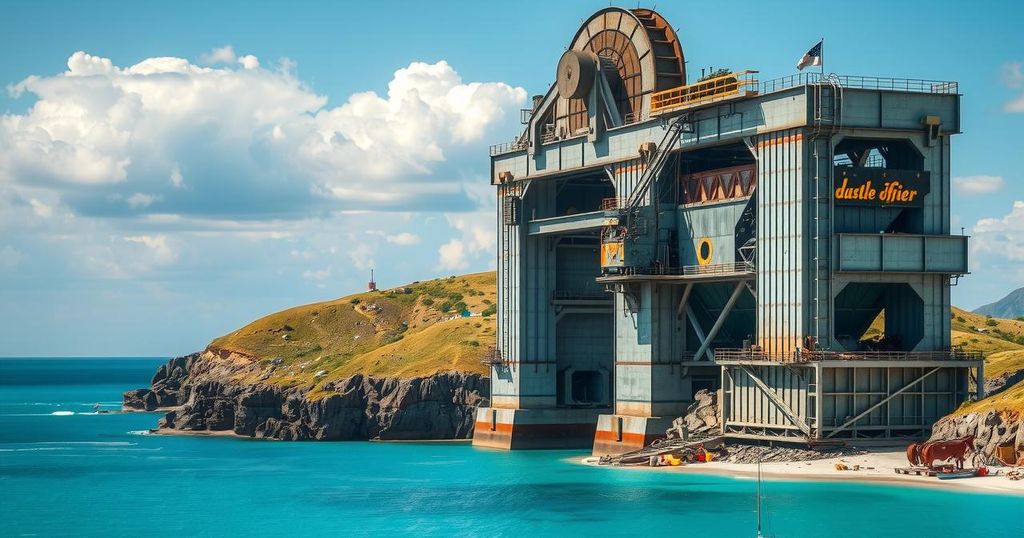Eramet’s mining operations in Senegal are causing severe environmental degradation and displacement among local farmers, raising concerns about sustainable practices and lack of adequate compensation. Community leaders are calling for a moratorium on mining to address the social and environmental impacts as Senegal’s President has signaled support for increased oversight. The balance between economic gain and environmental health remains a pressing issue.
Senegal’s coastline, a vital agricultural hub, is facing severe degradation due to the operations of what is described as the “world’s biggest mining dredger.” This colossal machine conducts mining for zircon, leaving a 23-kilometre-long scar visible from space as it steadily consumes land crucial for vegetable cultivation. Its operations involve extracting thousands of tonnes of mineral sands each hour, advancing on an artificial lake formed by groundwater resources.
The mining activities are spearheaded by Eramet, a French company that maintains its practices are exemplary. However, local farmers complain about significant displacement and inadequate compensation, asserting that their fertile lands and ecosystems are irreparably damaged. Mayor Gora Gaye highlighted the plight of the community, stating that the mining project has brought despair and shattered hope among the displaced residents.
Recently, a united front of local operators, farmers, and community leaders has emerged, calling for a moratorium on the mining operations. Senegal’s President Bassirou Diomaye Faye has echoed these concerns, stressing the need for transparency regarding the social and environmental ramifications of mining. He emphasized that local populations must benefit from mining practices, which have traditionally favored foreign interests.
Eramet commenced its mining activities in Senegal in 2014 after receiving a concession a decade earlier. The company claims to adhere strictly to legal frameworks and asserts that it has compensated landowners substantially above national guidelines. Despite these claims, displaced individuals, such as hotelier Sheikh Yves Jacquemain, express skepticism about the real estate and socio-economic viability post-mining.
Those affected argue that while some compensation has been offered, it has not sufficed to replace their lost livelihoods or regenerate the destroyed ecosystems. Many feel that they have been left worse off, with reduced agricultural yields and lack of sustainable water access.
While EGC insists it has provided modern housing for those displaced, many locals refute this claim, stating they have not received adequate housing or support for their families. They continue to demand the recovery of their land to restore their previous way of life. Current residents have observed negative effects on the surrounding environment, attributing the deterioration of agricultural output to the mining operations.
Calls for a temporary halt to mining activities have gained traction among community leaders. Mayor Gaye has called for comprehensive studies on the ecological damage caused. Yet, the company maintains that halting mining would jeopardize livelihoods and economic contributions to the state. As they continue their operations, the debate over the balance between development and sustainable practices in Senegal’s mining industry remains critical.
The mining practices in Senegal’s coastal regions led by Eramet have raised significant concerns regarding environmental sustainability and community welfare. Displacement of local populations and degradation of fertile agricultural lands have prompted a growing coalition seeking to halt operations until thorough investigations into the impacts can be conducted. There is urgent need for equitable solutions that ensure both environmental protection and fair compensation for affected communities.
Original Source: www.france24.com




